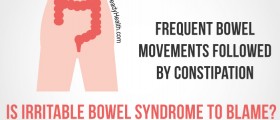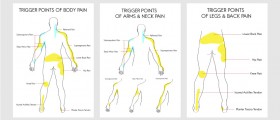Irritable bowel syndrome or IBS is a functional disease of the digestive tract.
Functional disorders are disorders relating to the functioning, rather than structure, of the system.
Who is at risk?
IBS is a very common disorder of digestive system. Anybody can develop this disorder at any stage of life. However, women are more likely to develop this disorder than men. Besides that, teenagers and young adults have a greater risk of developing IBS.

Signs and symptoms of IBS
IBS may present differently in different people depending on their age, gender, profession, race, and eating habits. Some common symptoms of IBS include:
-
Pain or discomfort: This is the most common presentation of irritable bowel syndrome. Patients mostly present to their physician with abdominal pain or discomfort, or sometimes both. The pain is not constant; it presents as episodes of pain and discomfort. The pain often fades away after a bowel movement. Patients explain this pain as abdominal spasms or colic pain.
-
Gas and Bloating: Excessive gas and swelling of the abdomen is also seen in most cases of IBS. People suffering from IBS pass gas frequently and usually feel relieved after doing so.
-
Diarrhea alternating constipation: It may sound bit absurd but diarrhea alternating constipation is one of the hallmarks of IBS. A patient may have bouts of diarrhea followed by bouts of constipation.
-
Nausea: Patients feel nauseated most of the time.
What causes IBS?
There is no specific cause of irritable bowel syndrome. However, experts believe that there are several factors that play a role in the development of the disorder. Some common factors include:
- Overactivity of the muscles or nerves of the gut (intestines)
- Intolerance to specific foods
- Overgrowth of normal flora (bacteria) of the gut
- Infection of the gut
- Low fluid intake
These factors play a role in the development of the disease but presence of any given factor does not guarantee the occurrence of the disease.
Treatment and Prevention
Treatment and prevention of IBS is totally dependent on the patient's lifestyle. No matter what medications you take, you cannot get rid of this disorder until you change your lifestyle. The treatment of IBS includes:
-
A High-fiber diet: Diet rich in fiber is very effective for the patients suffering from IBS. Fiber does not only help you get rid of this disorder but also helps the digestive system in performing its function properly.
-
High intake of fluids: Water is the best remedy for IBS. It is recommended that you drink a large amount of water or clear fluids so that your digestive system does not have to make extra efforts to digest food.
-
Lifestyle changes: You need to make some changes to your eating habits and daily routine if you want be symptom-free. Take small but frequent meals and add a little exercise to your daily routine if you have a sedentary lifestyle.
- Photo courtesy of SteadyHealth










_f_280x120.jpg)





